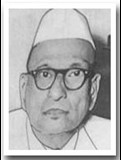Generalities
Commonly it is known as Christmas Rose or black hellebore. If the abbreviation ‘Hell’ and the adjective black is remembered, many of its typical symptoms will be understood. It is a remedy for low states of vitality and serious diseases, when everything around the patient looks dark. Patient’s face, lips, hands etc. become dark, nostrils sooty; hence it is a dark and dusky remedy. It affects the MIND and the BRAIN; senses become blunt and responses are sluggish; sees, hears, tastes imperfectly. Muscles do not obey the will, hence staggers, drops things etc. Muscular weakness ending in complete paralysis. Convulsions, and twitching of muscles; automatic acts; automatic motion of one arm and leg. Onset of the disease is gradual with progressive weakness. Lies on back, with knees drawn up, or with legs spread apart. Dropsical swellings. Epilepsy; with consciousness, followed by deep sleep. Convulsions, with extreme coldness; in sucklings. Noise arrests the paroxysms of convulsions. Ill effects of checked exanthemata; blows, disappointed love. Feeble and delicate. One side is paralysed, other keeps up automatic motions. Serous, effusions. Parts usually red turn white.
Worse
Cold air. Puberty. Dentition. Suppressions. Exertion. Evening, 4 to 8 p.m. Touch. Stooping.
Better
When thinking of it or when mind is diverted.
Mind
Complete unconsciousness. Inattention. Dull, stupid; slow of perception or apathetic. Gloomy. Dismal; despair, blank. Envious seeing others happy. Thoughtless staring. Hysterical mania, from self accusation. Involuntary sighing. Irritable worse consolation; does not want to be disturbed. Would not eat or speak. Fixed ideas. Melancholy; during puberty. Things look new. Picks at lips and clothes. Believes she is doing wrong, thinks she is going to die on a certain day; just sits and says nothing, does nothing. Idiocy after apoplexy.
Head
Stupefying headache, worse stooping. Shooting pains, causing sudden screams. Rolls the head constantly; with moaning (Hydrocephalus) or bores into pillow for relief. (Meningitis). As if water swashing inside. Headache ends in vomiting. Strikes the head. Forehead wrinkled in folds (brain affections). In concussion of the brain, from blow on the head, after arnica has failed. Electric shock passes through brain before spasms.
Eyes
Half open; sunken; turned upwards; squinting. Stupid staring or tired look. Night blindness. Photophobia, without inflammation.
Nose
Smell diminished. Nostrils; sooty, dilated. Nose pointed, rubs.
Face
Pale; oedematous; red hot; or cold. Neuralgia; unable to chew. Constant chewing motion of the lower jaw; hangs open. Cold sweat
on.
Mouth
Grinds the teeth. Horrible smell from mouth. Tongue; numb, dry, trembling; or covered with yellow ulcers. Ptyalism, with sore corners of the mouth. Aphthous, lienteria. Bitter taste in the throat worse eating.
Stomach
Aversion to vegetables, meat, sauerkraut. Greedily swallows the cold water, bites the spoon, but unconsciousness (Hydrocephalus). Children nurse greedily. Vomiting of greenish-black substance; with colic. Anorexia, with brain complaints. Thirst absent in most complaints, or thirst with disgust for drinks. Intense burning, extending to oesophagus, during pregnancy.
Abdomen
Gurgling as if bowels were full of water. Distended. Stools; loose, watery, or of white jelly like mucus; involuntary. Ascites.
Urinary
Urine; suppressed, scanty, with dark flakes or sediment; retained; bladder over-distended; during pregnancy. Nephritis. Uraemia. Dropsy. Frequent urging to urinate with scanty discharge.
Male
Hydrocele from suppressed eruption, on either side.
Female
Suppression of menses, from cold or disappointed love. Uterine dropsy, with piercing pain in limbs. Puerperal convulsions; arrested by sudden noise. Pains all over her body forces her menses on.
Respiratory
Sighing respiration. Chest constricted. Gasps for breath with open mouth, propped up in bed (Hydrothorax). Cough, dry worse at night; smoking or suddenly appears while smoking.
Heart
Slow, small, soft pulse.
Neck and Back
Neck rigid; (Meningitis).
Extremities
Automatic motion of one arm and leg except when asleep. Thumbs drawn into the palms. Legs drawn up with every attempt to change the position. Limbs stretched. Oedema of legs.
Sleep
Sopor; cannot be fully aroused. Soporous sleep, with shrieks and starts. Muscles twitch during sleep.
Fever
Chill spreads from arms. Gooseflesh. Chill; with fever; with sweat; with aversion to uncover. Coldness; of sweat.
Skin
Pale. Anasarca. Hair and nails fall off. Angio-neurotic oedema.
Related
Bry; Op; Zincum met.
Complementary
Zincum met.

